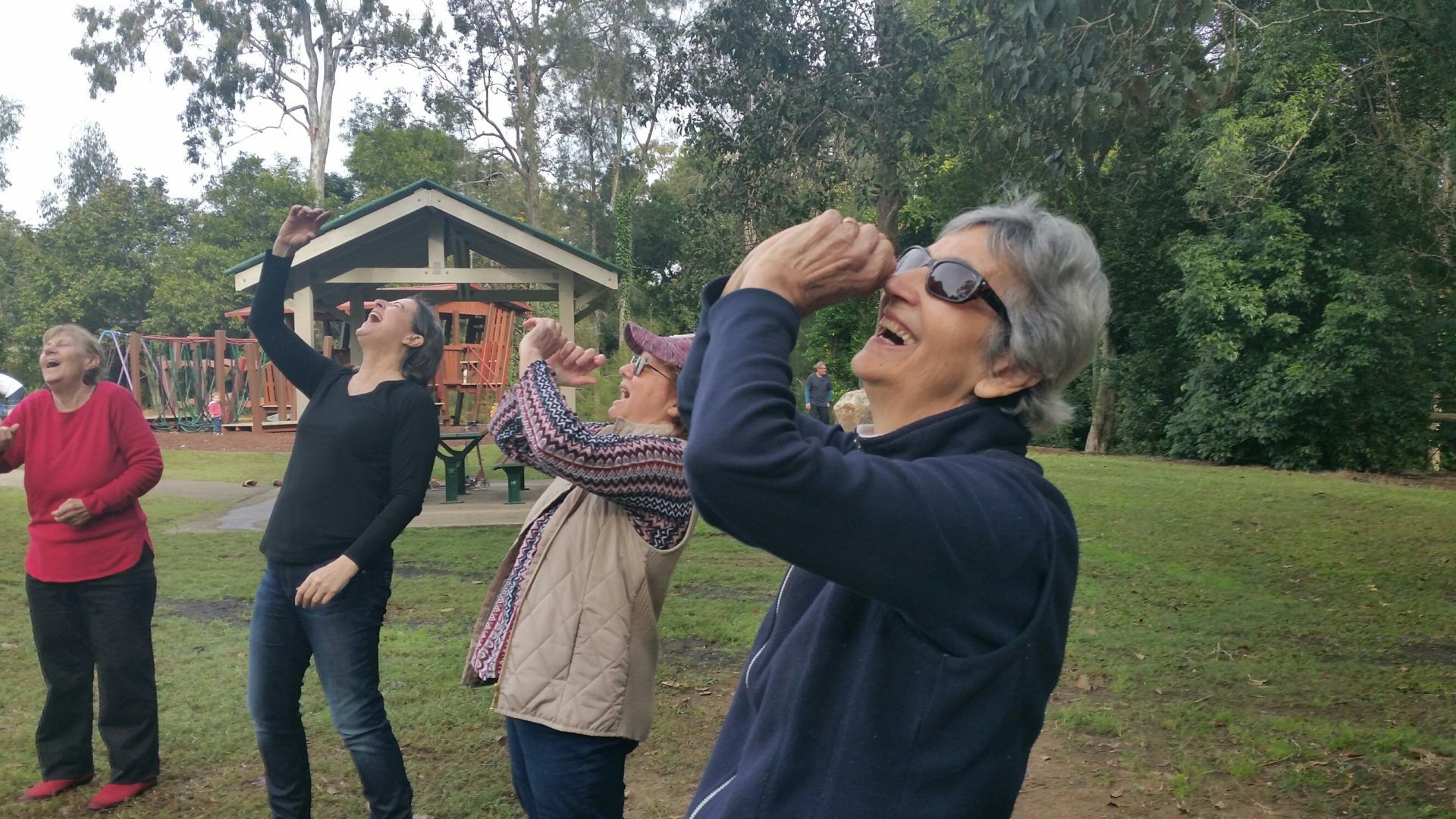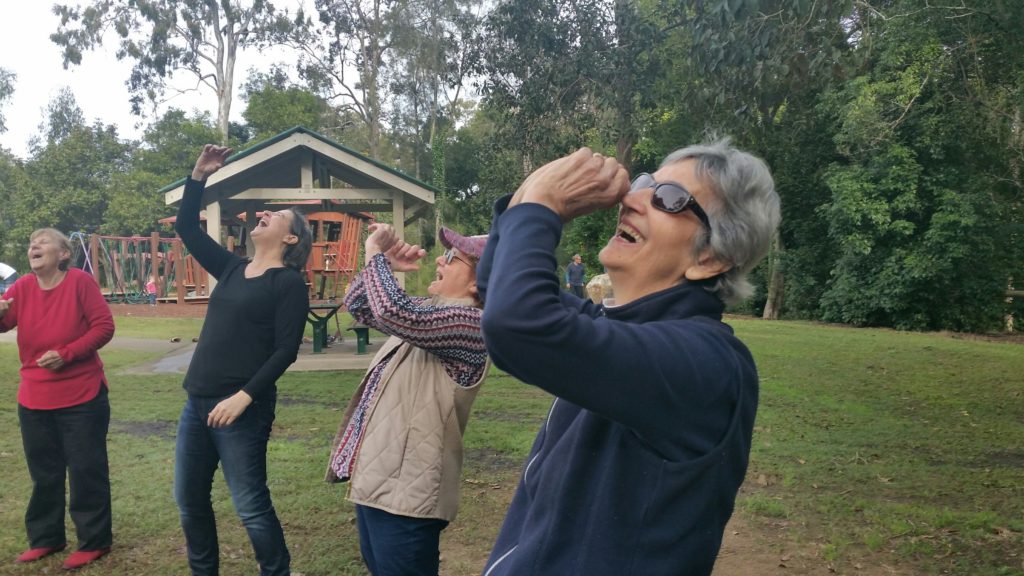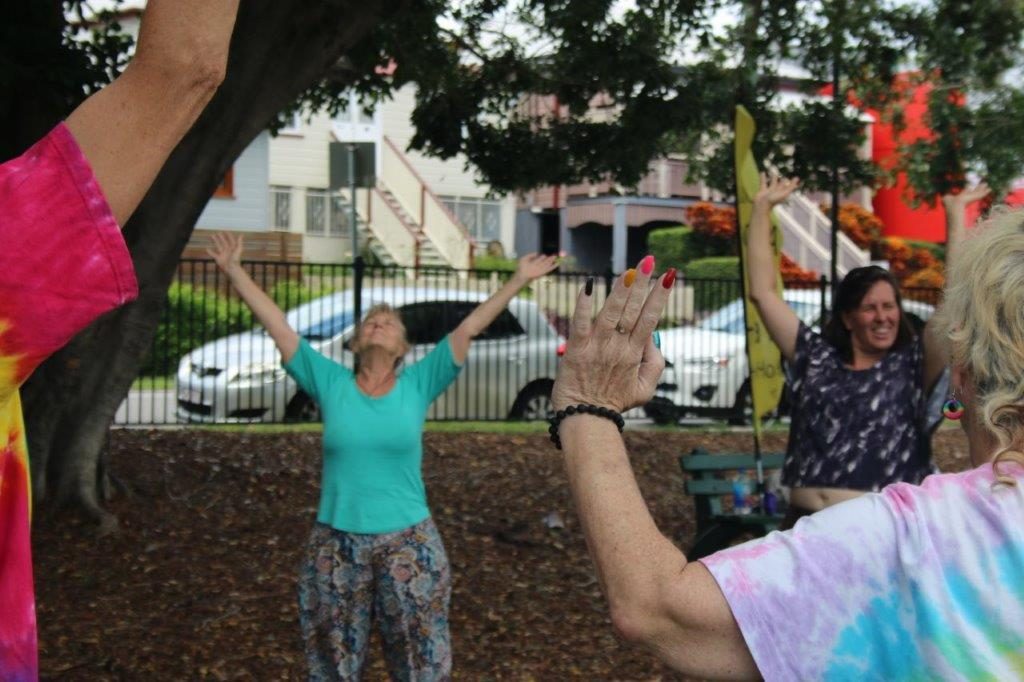
Laughter yoga’s place as a social prescription
You’ve gone to your GP feeling ‘out of sorts’. 2020 hasn’t been an easy year for anyone, some moreso than others. This doctor knows you: you’ve a medical history with the practice.
Depending on your symptoms and medical history, your GP may (a) write a prescription for some medication, (b) refer you to another health practitioner and/or (c) make a social prescription.

Lorna* started coming to one of my laughter yoga sessions at the recommendation of her GP.
Donna’s psychologist suggested laughter yoga could help her take life’s challenges less seriously.
Laughter yoga was suggested for Brett too, to help him handle stress: he joined my ‘virtual playroom’ online during COVID-imposed isolation.
Their practitioners are among a growing number who are ‘social prescribing’.
What is social prescribing?
Social prescribing is ‘a means of enabling general practitioners (GPs), nurses and other primary care professionals to refer people to a range of local, non-clinical activities.
A report released in late 2019 recommended social prescribing be integrated into routine healthcare throughout Australia.
It’s an approach successfully used in the UK.
Why social prescribing?
The report, from the Royal Australian College of General Practitioners (RACGP) and Consumers Health Forum Australia (CHF), suggested social prescribing could counter rising chronic health problems.
Social prescribing can address key risk factors for poor health, among them:
- social isolation
- multimorbidity (more than 2 illnesses or diseases occurring in the same person at the same time)
- mental health problems.
Who is social prescribing for?
The RACGP/CHF report identified 5 distinct groups who could benefit from social prescribing:
- people experiencing mental health issue
- people with chronic physical health conditions
- people suffering social isolation
- older people
- children in their first 1000 days of life.
What types of social prescriptions are there?
Activities that may be socially prescribed are as diverse as individual’s interests, abilities and needs.
They tend to be community-run (free or very low cost) to enhance accessibility.
They tend also to have a social side – to break down the risk of loneliness.
Joining a sports club, a walking group, a choir or gardening club, doing meditation classes, taking up a new hobby or volunteering are all forms of social prescription.
And then of course, there’s laughter club.
Laughter clubs’ health-giving roles
Laughter clubs are not to be mistaken for comedy clubs. They are different: read how here.
Laughter clubs are the grassroots hubs of laughter yoga goodness. You’ll find them in about 110 countries!
Whether online or in-person, through the practice of laughter yoga, laughter clubs lift spirits and heart rate, are absolutely welcoming and fun.

You don’t need to know anyone to come along. You become part of ‘the gang’ within minutes.
You don’t need to be in a good mood.
You don’t need to know any jokes.
It’s not ageist. Anyone of any age or ability is welcome.
It’s not expensive either. Most community-based laughter clubs in Australia are free or very low cost. They’re about inclusion and accessibility.
You can read more about why laughter is good medicine here.
Why laughter clubs are socially prescribed

Aside from the benefits just outlined, I suspect laughter yoga, practised in social laughter clubs, is recommended because the sessions effectively:
- banish blues
- wind back stress
- eliminate any sense of loneliness
- provide a light cardio workout.
How can you get involved in laughter yoga?
You don’t need to be depressed or anxious or stressed or ‘referred’ to come along to a laugher club. They’re a fun social form of exercising.
In-person laughter clubs were put on hold during COVID restrictions but are coming back! They’re run by trained skilled volunteer leaders. The club I run – at The Gap in Brisbane – is held on Saturdays at 9am.
Laughter club locations in Queensland are listed here. This link is for other Australian states. No laughter club in your community? Consider training as a laughter leader, volunteering to bring more joy into your community and your life.
As a social prescription, laughter yoga and laughter clubs could be just what the doctor ordered.
*Names have been changed for privacy however the referrals are very real.
(c) 2020 HeatherJoy Campbell
Founder of The Happydemic HeatherJoy Campbell is a certified laughter yoga teacher/trainer based in Brisbane, Australia. She hosts The Gap Laughter Club as a community service. Her ‘day job’ involves delivering laughter wellbeing sessions for workplaces, aged care, and community groups, online and in-person, spreading wellbeing through laughter seriously—with good dollops of gratitude, kindness, and playfulness.